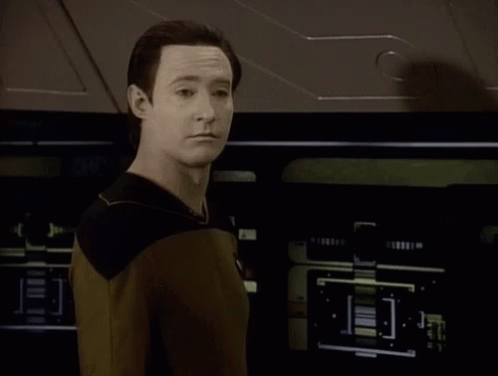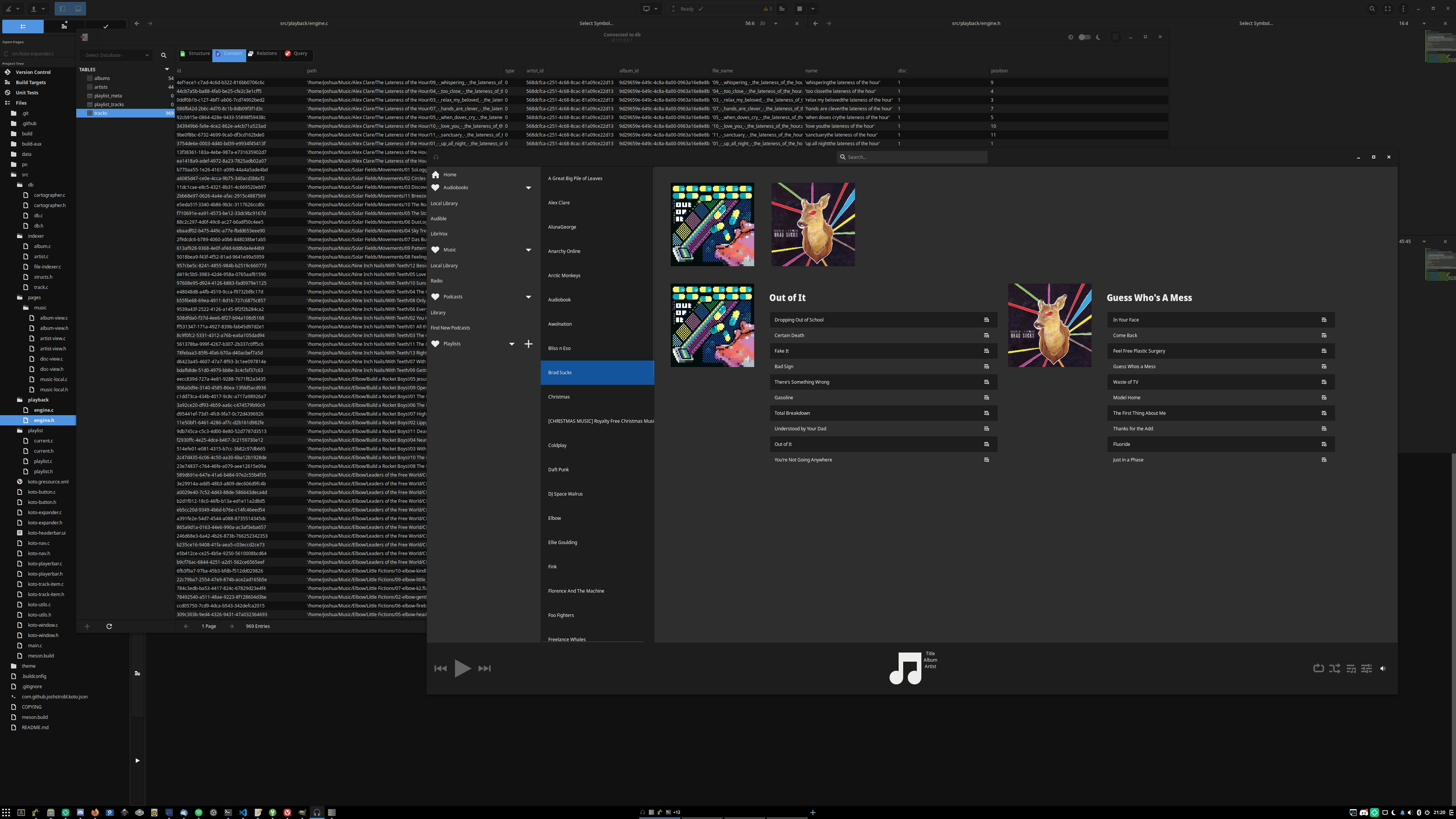#All Things Data
 Not that kind of data.
The primary goal was to enable reading and writing from the artists, albums, and tracks database tables early on. This would enable us to skip the file indexing during launch if our database existed, enabling us to iterate on Koto faster without the startup time regression from having to index our library every time we launch Koto.
This functionality has been implemented. Building on this, I introduced some fixes to file name parsing, mostly around hyphens (
Not that kind of data.
The primary goal was to enable reading and writing from the artists, albums, and tracks database tables early on. This would enable us to skip the file indexing during launch if our database existed, enabling us to iterate on Koto faster without the startup time regression from having to index our library every time we launch Koto.
This functionality has been implemented. Building on this, I introduced some fixes to file name parsing, mostly around hyphens (-) and made the checks when splitting the file name contents more robust.
Alongside the database reading and writing, I spent a considerable amount of time simplifying our pointer references to various structs / classes, such as KotoIndexedTracks within KotoIndexedAlbums, KotoIndexedAlbums in KotoIndexedArtists, and artists related to libraries. This was done via a KotoCartographer class (since it holds multiple maps, or in GLib's lingo - HashTables). There is no longer a required association between albums and tracks now, as an example, since all tracks are stored in the tracks HashTable, opening up the door to easily implementing that support down the road in a different class similar to a KotoIndexedArtist, like a podcast. All of the structs are stored in a HashTable for that respective type, with their key being their UUID (universal unique identifier) that we assign during our file index operation. Lastly a benefit of this is we can more reliably free the memory associated with a struct, like if we deleted a track and wanted to remove the relevant KotoIndexedTrack.
Moving to our KotoCartographer model enabled us to change from referencing the structs, as mentioned earlier, to just the UUIDs. This simplifies our APIs, allowing us to pass just the UUID for the associated struct and perform the consistent sanity checking, such as in our KotoCartographer struct methods. This change provided the foundation for our KotoPlaylist functionality as well, which I began implementing.
#KotoPlaylist
KotoPlaylist functionality went from non-existent to being able to be dynamically generated based on an KotoIndexedAlbum and having a swath of functionality, such as:- Adding and removing tracks based on the structs or UUIDs.
- Saving these playlists to the database tables, including iterating over each track associated with a KotoPlaylist to save those too!
- Functionality for getting and setting artwork
- Functionality for getting and setting the current position in the playlist.
- Functionality for going to the next or previous track.
KotoCurrentPlaylist class with the scope of it being to:
- Enable us to be emit a signal when the current playlist has changed, enabling any listeners to update the UX.
- Providing functionality for getting and setting the current playlist.
#Playback
Speaking of Playback, I started work on ourKotoPlaybackEngine class. I laid out all the immediately desirable functionality in our engine's header file, ranging from going backwards and forwards in playback to setting our position in the current playing track, setting volume, starting and pausing playback, etc.
The implementation of our KotoPlaybackEngine is still in its early days. The functions which tie directly into the KotoCurrentPlaylist and current KotoPlaylist have been already been implemented though, specifically koto_playback_engine_backwards and koto_playback_engine_forwards.
#Upcoming
During the second half of March, my goals are:- Hook into GStreamer's GstPlaybin, GstPipeline, and GstElement functionality to successfully begin the management of playback of audio, ranging from validating forwards / backwards to implementing muting and volume setting, play / pause, and scrubbing through a track.
- Get all that hooked into the UI
- Begin laying down the foundation for graphical playlist management
#Streams
All development streams happen on my Twitch every Tuesday and Thursday from 12pm-5pm EEST (Eastern European Standard Time). If you miss these streams, I upload all of them to Odysee so be sure to check them out! Since my last Dev Diary, the folks over at Odysee have added me to their Viewer Rewards Program, so if you have an Odysee account, you can now get a daily watch reward of a bit of LBRY Credits (LBC) when you watch my videos, and I get some too!